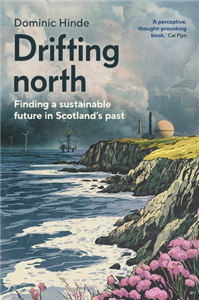Geography & the Environment
Laws and Governance to Prevent the Destruction of Our Planet
Eradicating Ecocide highlights the need for enforceable, legally binding mechanisms in national and international law to hold to account perpetrators of long term severe damage to the environment. At this critical juncture in history it is vital that we set global standards of accountability for corporations, in order to put an end to the culture of impunity and double standards that pervade the international legal system. Higgins advocates the introduction of a new international law, Ecocide: ‘damage, destruction to or loss of ecosystems’, as the 5th Crime Against Peace. This would hold to account heads of corporate bodies that are found guilty of damaging the environment; it would present corporations with a new choice: they could choose to be part of the solution, part of the salvation of the planet’s future, by complying with the new law of Ecocide. The opportunity to implement this law represents a crossroads in the fate of humanity; we can accept the change, or we can continue to allow its destruction, risking future brutal war over disappearing natural resources.This is the first book to explain that we all have a commanding voice and the power to call upon all our governments to change the existing rules of the game.Higgins presents examples of laws in other countries which have succeeded in curtailing the power of governments, corporations and banks and made a quick and effective change, demonstrating that her proposal is not impossible. Eradicating Ecocide is a crash course on what laws work, what doesn’t and what else is needed to prevent the imminent disaster of global collapse.Eradicating Ecocide provides a comprehensive overview of what needs to be done in order to prevent ecocide. It is a book providing a template of a body of laws for all governments to implement, which applies equally to smaller communities and anyone who is involved in decision-making. --- The author is becoming a world figure in promoting the idea that ecocide should become an international crime like genocide. Here is a link to a talk she gave recently in Vienna, suggesting that a German language edition might be a prospect. ERDgespräche//EARTHtalks 2013: Polly Higgins on Vimeo.



























